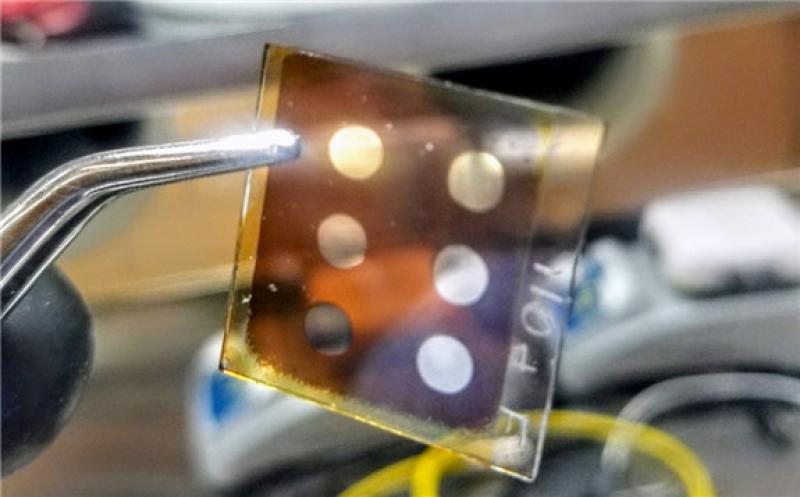U.S. researchers have created an inorganic mixed halide perovskite solar cell which they claim shows no thermal degradation even at 200 degrees Celsius for three days. The device can be used in tandem junction cells and is designed for use in real-life environments with high solar irradiation.

Researchers from Iowa State University in the U.S. have created a flexible perovskite solar cell with 11.8% efficiency and a strong resistance to high temperatures.
The scientists used a layer-by-layer vapor deposition technique with thin layers of lead iodide (PbI2) and caesium bromide (CsBr) precursors to fabricate inorganic mixed halide perovskite solar cells. “This vapor deposition technique is consistent, leaves no contaminants, and is already used in other industries so it can be scaled up for commercial production,” the research group said.
The researchers specified that the use of inorganic compounds such as cesium has contributed to making the cell resistant to higher temperatures. They claim that the cell showed no thermal degradation even at 200 degrees Celsius in a 72-hour X-ray diffraction analysis.
According to the scientists, the cell has a significant thermal stability and a band gap of 1.87 electron volts (eV). These two characteristics combined, they further explained, make the PV device ideal for applications in tandem junction cells for use in real-life environments with high solar radiation and ambient temperatures exceeding 55 °C in the summer, and silicon cell module temperatures approaching 86 °C.
“This study demonstrates a more robust thermal stability of inorganic perovskite materials and solar cells at higher temperatures and over extended periods of time than reported elsewhere,” the researchers wrote in the paper Thermally Stable, Efficient, Vapor Deposited Inorganic Perovskite Solar Cells, published in ACS Applied Energy Materials.